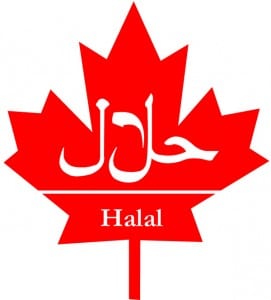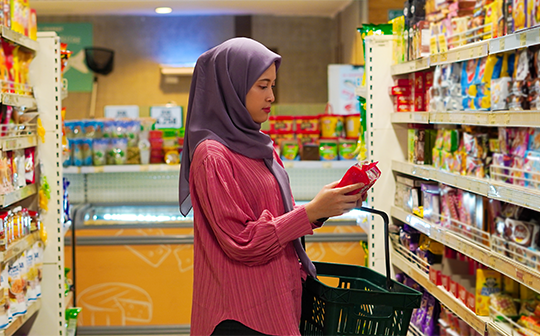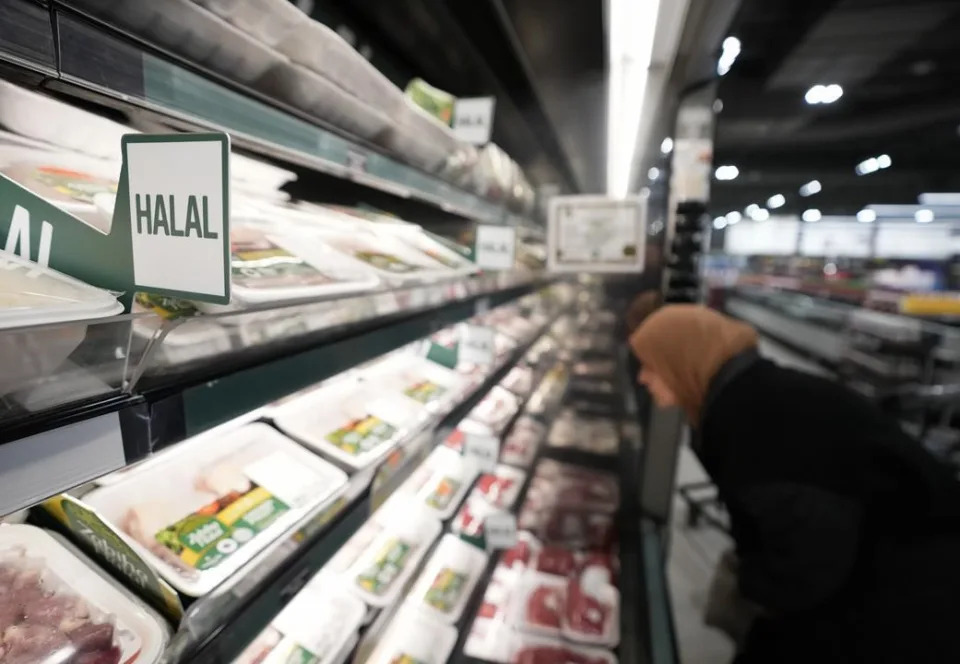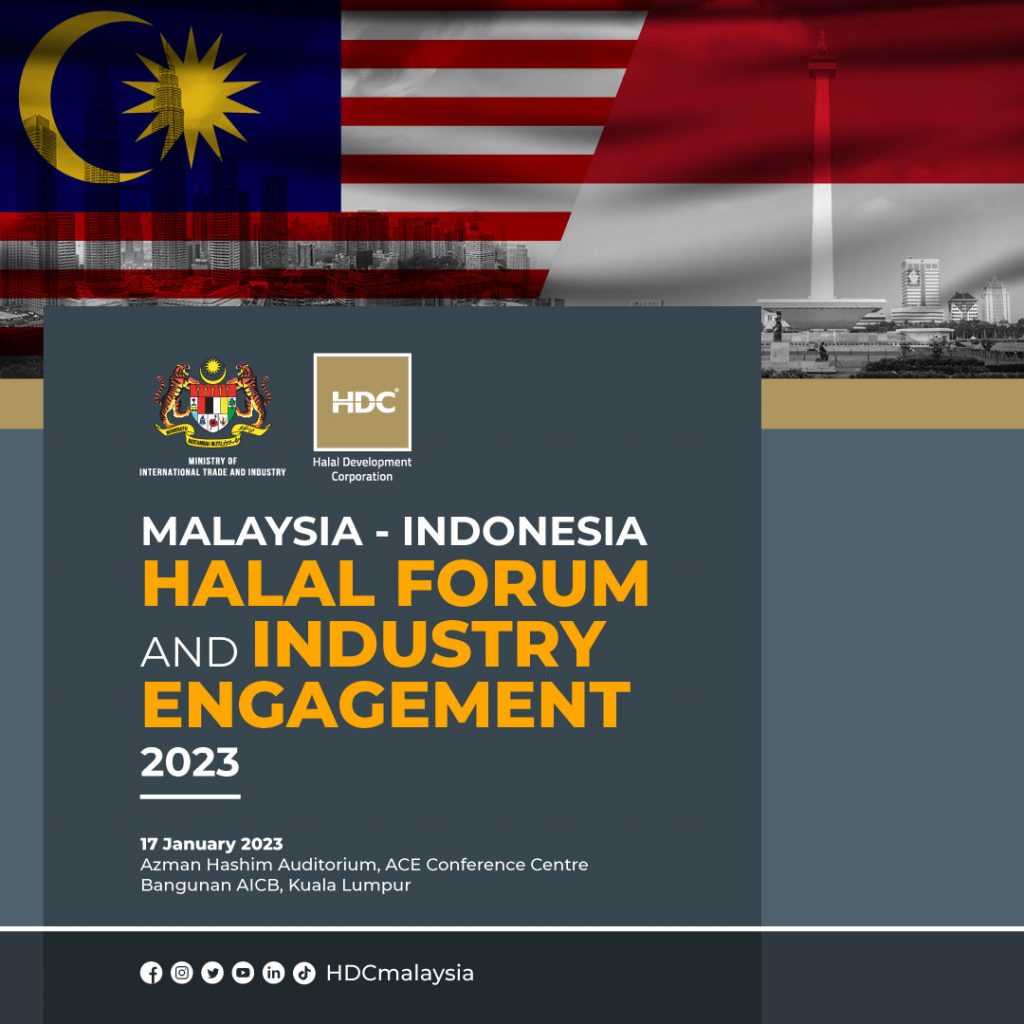Carol Fragiskos, International trade writer, Export Development Canada (EDC)
 Across the world, two mega-trends have converged, offering new opportunities for Canada’s innovative agri-food sector:
Across the world, two mega-trends have converged, offering new opportunities for Canada’s innovative agri-food sector:
- The middle class is expanding in high-growth regions, like the Indo-Pacific, creating many millions of consumers with disposable income to spend on high-quality food.
- A significant slice of this new demographic is Muslim and follows halal dietary laws.
“The growth of the Muslim middle class means that a substantial percentage of the world’s population is expected to increase spending on halal products,” says Zeeshanali Fazal, Export Development Canada’s (EDC) regional director of the mid-market group in Quebec.
Even outside Muslim-majority countries, demand for halal products is growing as the Muslim population increases. According to Statista, worldwide halal consumer spending on food in 2021 was close to US$1.3 trillion. That number is expected to climb to almost US$1.7 trillion by 2025.
The grocery industry has responded by putting more halal foods on the shelf, introducing halal-certified store brands and adapting existing products to meet halal requirements. For Canadian companies seeking opportunities to diversify, the halal food industry offers new pathways to global growth.
What is halal food?
Simply translated, halal means “permitted” under Islamic law. Conversely, haram means “forbidden.” Among other things, alcohol, pork and pork byproducts are haram, including trace ingredients such as pork gelatins typically used in soups, sauces, desserts and snack foods.
The main categories of halal food include:
- Meat and poultry
- Dairy products
- Oil, fats and waxes
- Confectionery
Meat products account for the bulk of global revenues. While meat and poultry are permissible, they must be slaughtered according to the Islamic method to be halal. Wild-caught seafood is usually halal; farmed seafood is trickier since its status depends on the feed and farming process used. Fruits, vegetables and grains are “halal by default” in their unprocessed states.
Beyond food products, other halal lifestyle and consumer goods include cosmetics and pharmaceuticals.
The stamp of approval from halal shoppers
What do these products have in common? Except for foods that are halal by default, they all need to be certified to be halal. To Muslims worldwide, living a halal lifestyle guides most, if not all, of their purchasing decisions, especially in the grocery aisle.
 “When it comes to food, health supplements, cosmetics and pharmaceuticals, if it’s not stamped halal, it’s not going in the cart,” says Fazal, sharing his personal experience as a halal consumer.
“When it comes to food, health supplements, cosmetics and pharmaceuticals, if it’s not stamped halal, it’s not going in the cart,” says Fazal, sharing his personal experience as a halal consumer.
He’s referring to the halal certification stamp that signifies that the product complies with Islamic law, comparing it to kosher, organic, vegetarian, keto, and vegan labels. “If you’re following a particular dietary regime, having that stamp provides peace of mind and simplifies your buying decision.”
A primer on halal certification
To earn the coveted halal stamp, products go through a process administered by an accredited halal certification body. The entire supply chain and production process are scrutinized to ensure no cross-contamination elements or processes are introduced.
The procedure is fairly straightforward, but there’s no single, globally recognized halal certification authority. Standards and interpretations vary around the world. In other words, just because your chicken base powder has been certified in Canada, doesn’t mean it will pass the halal certification standards of another country. This is especially true for Muslim-majority countries such as Indonesia, Malaysia, Turkey, or the United Arab Emirates (UAE), which require certification by a body recognized by their respective governments. It’s important to research the certification body you’re working with to ensure they’re accredited by the country to which you intend to export.
In Canada, there are several certification bodies. Before choosing which agency to partner with, consider your export market and research its halal certification standards. You may find a Canadian certification agency that’s recognized in your target market. Or you may discover that with just a few tweaks, your product could be ready for multiple markets.
“The halal community is a parallel consumer group, looking for similar products and reflecting many of the same trends, but within a halal lifestyle.”
Consumer trends shaping the halal food industry
“Halal non-alcoholic beverages are booming. So are halal plant-based proteins and healthy food products in general, like superfoods and keto products,” says Tomás Guerrero, director of the Halal Trade & Marketing Centre (HTMC), headquartered in Dubai. The global business development centre, sponsored by the UAE government, is focused on creating business opportunities for manufacturers, suppliers and distributors of halal products and services.
“The halal community is a parallel consumer group, looking for similar products and reflecting many of the same trends, but within a halal lifestyle,” says Guerrero.
“In many ways, the new generation of Muslims mirror the new generation of everyone else. They’re living their lives on social media. They’re travelling, working longer hours, have busy lifestyles and are marrying later. They’re living all the same trends, but within the halal framework,” he explains.
These lifestyle changes have led to a spike in demand for halal ready-to-eat foods. But he cautions that in addition to being certified, food producers need to understand local flavours and preferences in each market. That means adjusting everything from spice levels and the meat used in the product, to the presentation and packaging.
Agriculture and Agri-Food Canada (AAFC) reports similar findings. Rising disposable income in many Muslim countries has increased demand for better quality foods, more variety, and convenience. AAFC research found that younger generations of Muslims, like others in their age brackets, opt for convenience rather than cooking from scratch.
Younger Muslims are also expanding their tastes beyond traditional cuisines, creating a market ripe for new product developments. This trend is reflected in the growing number of halal product launches, which the Kerry Group reports “jumped by 19% from 2018 to 2020, from 16,936 products to 20,482.”
Fazal echoes these research findings. “I like beer and pizza as much as the next person, but I choose an alcohol-free brand of beer and a halal brand of pizza. When looking for a pain or headache remedy, I reach for the ones made with plant-based capsules. To understand the halal market, you need to realize that the tastes are the same—everyone likes pizza—but with a halal twist,” he says.
Key markets for halal foods
Worldwide spending on halal food is on track for continued and consequential growth. The noteworthy uptick in consumer demand is largely due to the growth of the Muslim population, which the Pew Research Center projects will reach 2.2 billion by 2030, or more than one-quarter of the globe’s total population.

Indo-Pacific
By a substantial margin, the Indo-Pacific accounts for the largest share of the global halal food market. According to Statista, four of the six countries with the largest number of Muslims in 2022—defined as having populations in excess of 100 million Muslims—were in the Indo-Pacific: Indonesia, Pakistan, India and Bangladesh.
The Indo-Pacific is also strategic regional market of the future. EDC is heavily invested in the region, with in-market representatives in key countries. Agri-food is a critical sector where the opportunities for Canadian producers are vast.
Scoping the opportunities in Indonesia is Job 1 for Sean Emmond, EDC’s chief representative for the country. With a population of more than 275 million—87% are Muslim—Indonesia is home to the largest concentration of Muslims in the world. “What happens when you have millions of people moving up to the middle class? They eat better food. They spend more for higher quality groceries across the board. Canada is known for quality foods the world over, but especially in this corner of the globe. Seriously, the opportunity for Canadian exporters here is massive,” Emmond says
He likens the halal food industry in the Indo-Pacific to two great stories wrapped in one: The overall food and beverage opportunity across the region combined with the highly lucrative halal segment.
 “Of course, the biggest story is the Indonesian government’s recent accreditation of two Canadian entities to be foreign halal certifiers: The Islamic Food and Nutrition Council of Canada (IFANCC) and the Halal Montreal Certification Authority (HMCA). That means Canadian food producers can be certified in Canada, and have those certifications recognized in Indonesia. This is huge for Canadian exports of animal protein and other foodstuffs, which have had market access challenges to Indonesia since 2016.”
“Of course, the biggest story is the Indonesian government’s recent accreditation of two Canadian entities to be foreign halal certifiers: The Islamic Food and Nutrition Council of Canada (IFANCC) and the Halal Montreal Certification Authority (HMCA). That means Canadian food producers can be certified in Canada, and have those certifications recognized in Indonesia. This is huge for Canadian exports of animal protein and other foodstuffs, which have had market access challenges to Indonesia since 2016.”
Seafood was not affected by these restrictions, and Canadian seafood exports have posted significant gains in the Indonesian market in the past decade. “That’s an encouraging base to build from. Now that Canada has foreign halal certifiers in place, we can support the growth of other animal protein exports here as well,” Emmond says.
It’s important to remain current with the halal requirements in any Muslim-majority country to which you export. For example, effective October 2024, Indonesia will implement new regulations that require halal certification and labelling for the import of specified food and beverages. Natural and unprocessed products are exempt from this requirement. Emmond recommends that Canadian food and beverage exporters work with their Indonesian importer and contact the halal certification bodies directly to clarify if their products will be affected by the new standard.
North America
In Canada, the Muslim population has more than doubled in the last 20 years. In 2021, Statistics Canada reported that almost 5% of our population—roughly 1.7 million people—was Muslim.
“It should come as no surprise that we’re witnessing a rise in demand for halal products here at home,” says Ashley Kanary, EDC’s director of global agri-food. He points to leading grocery stores such as Costco, FreshCo and No Frills that are carrying more halal-certified products and finding a growing market amongst both Muslim and non-Muslim consumers.
“The numbers are even higher in the United States,” says Kanary. (Pew estimates that the U.S. population of Muslims will grow to more than six million by 2030.) “It’s a great fit for Canadian food producers who are looking to get certified in Canada and understand the process. Then, they can get certified in the U.S., to expand south of the border. And where feasible, grow into the Indo-Pacific, where the numbers are just mind-blowing,” he says.
United Kingdom & European Union
The increasing Muslim population is also driving demand for halal products in the United Kingdom (U.K.) and European Union (EU). For example, in France—where the Muslim population of more than 5.7 million is estimated to be the largest in Europe—supermarket leaders Carrefour, Franprix, Auchan and Leclerc feature an extensive line of halal products.
The U.K. supermarket industry has been an early adopter of halal products. Morrisons, Tesco, Sainsbury’s, Marks & Spencer, Aldi and Waitrose all carry halal meats and packaged goods to cater to the four million Muslims in the U.K.
Middle East and Africa
While smaller than markets in the Indo-Pacific, many countries in the Middle East and Africa with significant Muslim populations are more reliant on imports to feed their people.
“Of the 57 Muslim-majority countries worldwide, many are net importers of food and beverage products, especially in northern Africa and the Middle East,” says Guerrero. “In the relatively wealthy Gulf Cooperation Council (GCC) states, imports account for more than 80% of all the food that’s consumed. So, Canadian companies have a wide-open window to diversify in these markets.”
How EDC can help
EDC works with a wide array of partners and financial institutions, within Canada and abroad, to support Canadian exporters. We’re an integral part of Trade Team Canada—six interconnected agencies, including the Trade Commissioner Service, that work together to support Canadian companies throughout their export journey.
EDC offers:
- A full suite of credit insurance products to lower your risk for doing business abroad
- Help with getting access to working capital
- Detailed insights on global markets
- Connections to international companies in need of your products and services
Learn how EDC’s financial and knowledge solutions can help you understand the opportunities in your target market and make exporting less risky. To contact an EDC export advisor, visit our Export Help Hub.



